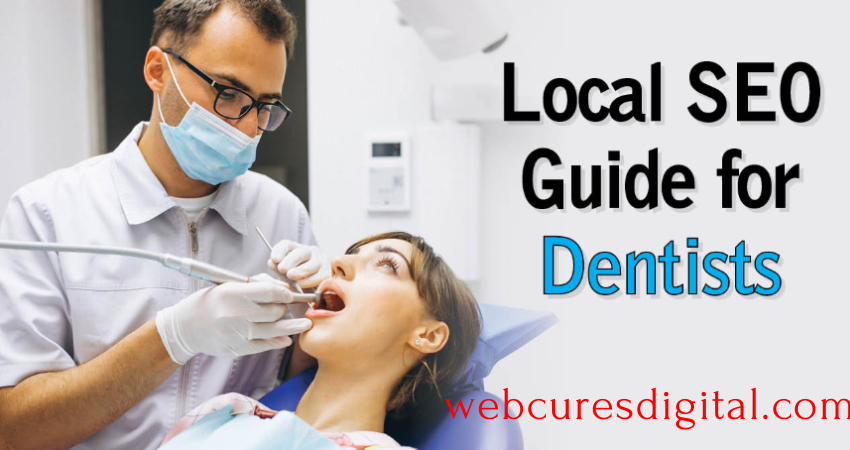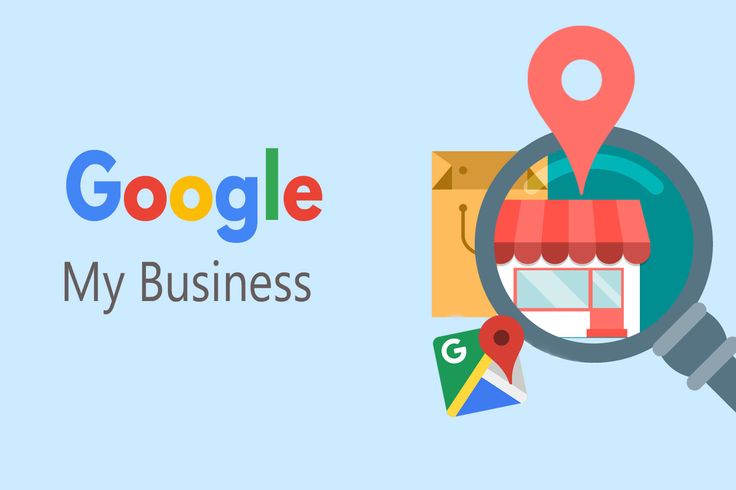Local SEO Guide for Dentists – 5 Steps to Rank #1

Are you a dentist looking to increase your online visibility and attract more patients? In today’s digital age, having a strong online presence is vital for any business, including dental services. One of the most effective ways to improve your online visibility is through search engine optimization (SEO). In this guide, we will provide you with five crucial steps to help you rank #1 in local SEO for dentists.
Table of Contents
- 1. Keyword Placement
- 2. Local Business Listings
- 3. Keyword Research
- 4. Online Reviews
- 5. Local Backlinks
- Conclusion
- FAQs
- 1. How Long Does It Take to See Results from Local SEO?
- 2. Can Dentists Handle Local SEO on Their Own?
- 3. Are Paid Advertising and Local SEO Mutually Exclusive?
- 4. How Often Should Dentists Update Their Google My Business?
- 5. What Are the Common Mistakes to Avoid in Local SEO?
- 6. Is It Necessary to Hire an SEO Expert for Dental Clinics?
1. Keyword Placement

Effective keyword placement is crucial for optimizing content for search engines. Incorporating relevant keywords naturally within the content, headings, and meta descriptions helps search engines understand the context and relevance of your page.
Quality Content
Creating high-quality content is fundamental for engaging and retaining visitors. Quality content addresses user needs, provides valuable information, and is well-structured. This not only improves user experience but also enhances search engine rankings.
Meta Tags
Meta tags, including title and description tags, play a vital role in on-page SEO. Well-crafted meta tags with relevant keywords can significantly impact click-through rates and improve search engine visibility.
URL Structure
A clean and descriptive URL structure contributes to both user experience and dentist seo. Short, readable URLs that include relevant keywords make it easier for both search engines and users to understand the page’s content.
Image Optimization
Optimizing images by compressing them, using descriptive file names, and adding alt text improves page load times and enhances accessibility. Search engines also consider image optimization as a factor in ranking algorithms.
Internal Linking
Internal linking helps establish a logical hierarchy within a website and facilitates the flow of link equity. Properly interlinking relevant pages can improve user navigation and distribute SEO value across the site.
Mobile Optimization
Given the prevalence of mobile users, optimizing websites for mobile devices is imperative. Responsive design, mobile-friendly layouts, and fast loading times on mobile contribute to a positive user experience and favorably influence search rankings.
Page Speed
Page speed is a critical factor for both user experience and search engine rankings. Fast-loading pages enhance user satisfaction and reduce bounce rates, positively affecting SEO. Optimizing images, leveraging browser caching, and minimizing HTTP requests are common strategies for improving page speed.
2. Local Business Listings
Local business listings are essential to a comprehensive online presence for businesses seeking to attract local customers. These profiles serve as digital representations of a business and its offerings, playing a pivotal role in local search engine optimization (SEO) efforts.
Google My Business (GMB)

Claiming and optimizing your Google My Business listing is paramount. It provides a centralized platform for displaying crucial information, such as business hours, location, and contact details. A well-optimized GMB listing increases visibility in local searches and on Google Maps.
Consistent NAP
Maintaining consistent business information, including the name, address, and phone number (NAP), is vital across all online listings. This consistency reinforces your business’s legitimacy and trustworthiness in the eyes of both users and search engines.
Categories and Attributes
Choosing relevant business categories on platforms like Yelp and adding detailed attributes provides users with a clear understanding of your business’s products or services. Accurate categorization enhances the likelihood of appearing in relevant local searches.
Customer Reviews
Positive customer reviews play a crucial role in building credibility and attracting new customers. Actively encouraging satisfied customers to leave reviews on your business listings, particularly on platforms like Google and Yelp, can significantly influence potential customers’ perceptions.
Local Citations
Ensuring your business is listed on various online directories and citation sites is essential for local SEO. These citations contribute to local search ranking algorithms and increase your business’s visibility in local search results.
3. Keyword Research
Keyword research is a foundational aspect of search engine optimization (SEO), encompassing the strategic identification of search terms that users input into search engines. This process is essential for enhancing a website’s visibility and attracting relevant traffic. Here are the key steps involved in effective keyword research:

Identifying Seed Keywords
Begin by identifying seed keywords, which are broad terms relevant to your business or industry. These terms serve as the starting point for more in-depth research and help establish a foundation for understanding the broader landscape of potential search queries.
Analyzing Competitors
Conduct competitive analysis to identify keywords that competitors are targeting successfully. This involves examining competitor websites, content, and meta tags to understand the keywords they prioritize. Analyzing competitors provides valuable insights into industry trends and user search behavior.
Long-Tail Keywords
Focus on long-tail keywords, which are specific, longer phrases that cater to niche audiences. While they may have lower search volumes compared to broad keywords, long-tail keywords often convert better because they indicate a more specific user intent. Incorporating these phrases into your content can attract highly targeted traffic.
Search Volume and Competition
Evaluate search volume and competition for selected keywords. Striking a balance between high search volume and manageable competition is crucial. Targeting overly competitive keywords may be challenging for newer websites, while low-volume keywords may not drive sufficient traffic. Tools like Google Keyword Planner can help assess these factors.
4. Online Reviews

Online reviews wield considerable influence over a business’s online reputation and can significantly affect its local search rankings. Businesses must actively manage and cultivate positive reviews while addressing negative feedback. Here are key considerations for navigating the realm of online reviews:
Review Platforms
Encouraging customers to leave reviews on popular platforms like Google, Yelp, and industry-specific sites is crucial. Positive reviews on these platforms not only contribute to a business’s reputation but also impact local search rankings. A diverse array of reviews across multiple platforms provides a comprehensive view of customer satisfaction.
Responding to Reviews
Engaging with positive and negative reviews is essential for maintaining a positive online reputation. Responding to positive reviews shows appreciation for customer feedback and helps build a sense of community. For negative reviews, addressing concerns professionally and offering solutions demonstrates a commitment to customer satisfaction. Timely responses showcase an active and responsive business.
Review Schema Markup
Implementing review schema markup on your website is a technical but powerful strategy. Schema markup provides search engines with structured data about your content, and review schema specifically highlights review ratings. This can result in rich snippets in search results, displaying star ratings alongside your website link, enhancing visibility, and attracting more clicks.
5. Local Backlinks

Local backlinks are a crucial component of a robust SEO strategy for businesses targeting a specific geographic area. Building a network of quality local backlinks enhances a website’s authority and visibility in local search results. Here are effective strategies for acquiring local backlinks:
Local Directories
Acquire links from reputable local directories. Ensure that your business is listed accurately on platforms such as Google My Business, Yelp, and other industry-specific directories. These not only provide valuable backlinks but also improve your business’s visibility in local searches.
Local Sponsorships
Partnering with local events, organizations, or charities and securing a sponsorship can lead to valuable local backlinks. Event organizers often include sponsor information and links on their websites. This not only benefits the community but also establishes your business as an active participant, earning you relevant backlinks.
Local News Coverage
Seek opportunities to get featured in local news articles or blogs. Building relationships with local journalists, offering expert opinions, or sharing noteworthy events related to your business can lead to media coverage with backlinks. Being featured in local news adds credibility and authority to your business in the eyes of both customers and search engines.
Community Involvement
Engage actively in the local community, participating in events, supporting local initiatives, or collaborating with other businesses. Community involvement not only strengthens your local presence but also increases the likelihood of earning backlinks from local partners or collaborators.
Conclusion
Improving your local SEO as a dentist can significantly enhance your online visibility, attract more patients, and ultimately grow your dental practice. By following these five steps, including extensive keyword research, on-page optimization, local business listings, online reviews, and local backlinks, you’ll be on your way to ranking #1 in local search results. Stay consistent, monitor your progress, and adapt your strategies as needed to ensure long-term success in local SEO for dentists.
FAQs

1. How Long Does It Take to See Results from Local SEO?
Achieving optimal results from Local SEO takes time, typically several months. Consistency in implementing strategies is key to seeing sustained improvements.
2. Can Dentists Handle Local SEO on Their Own?
While dentists can undertake basic Local SEO practices, hiring an expert ensures a comprehensive approach, maximizing the effectiveness of your efforts.
3. Are Paid Advertising and Local SEO Mutually Exclusive?
No, they complement each other. Combining paid advertising with Local SEO creates a holistic strategy, increasing visibility and attracting a wider audience.
4. How Often Should Dentists Update Their Google My Business?
Regular updates, such as changes in business hours or services, should be done promptly. Aim for at least monthly updates to keep information current.
5. What Are the Common Mistakes to Avoid in Local SEO?
Avoid inconsistent NAP details, neglecting online reviews, and overlooking mobile optimization. These mistakes can hinder your local search ranking.
6. Is It Necessary to Hire an SEO Expert for Dental Clinics?
While basic practices can be handled in-house, hiring an SEO expert brings specialized knowledge, ensuring a more robust and effective Local SEO strategy.





